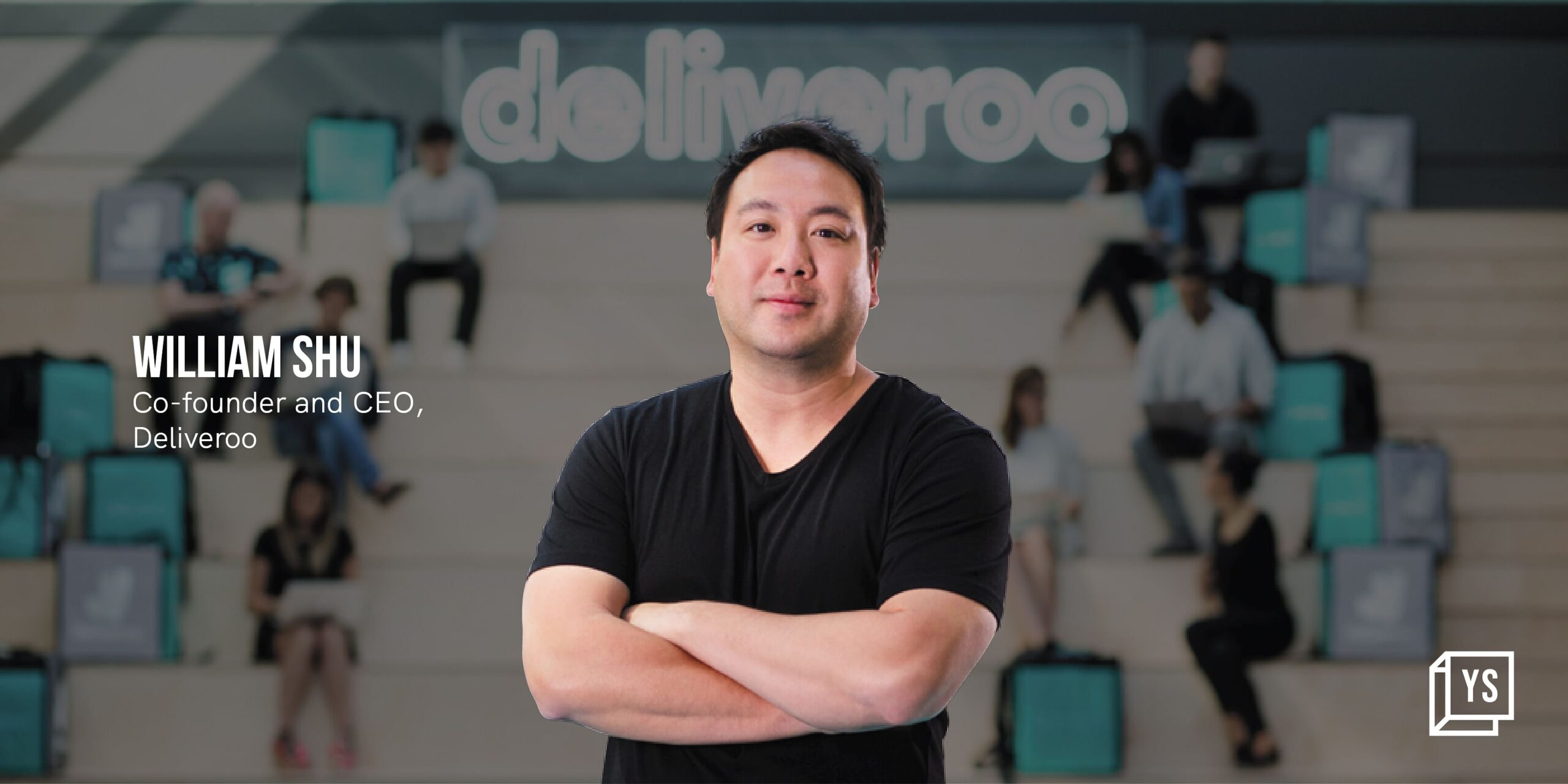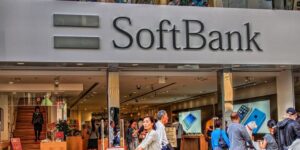Delivering categories like grocery, health and beauty online is about building a local community of businesses to leverage existing networks, William Shu, Co-founder and CEO of London-headquartered food delivery app, , said.
Founded in 2013 by Shu and Greg Orlowski, the online food delivery company, with operations across 10 global markets, is evaluating adding health and beauty apart from grocery delivery to its repertoire of services, the CEO told YourStory during his visit to the company’s India Development Centre in Hyderabad last month.
“In the UK, we have a partnership with Boots, which is the biggest pharmacy [in the country]…If you look at the grocery, it is a big part of our business today. Anywhere from 20% to 30% of all orders have a non-food item in them. It could be soap, or shaving cream. We are evaluating some things in health and beauty as well and looking at different verticals,” he said.
He clarified that Deliveroo did not look at the strategy as diversification, but as building a hyperlocal delivery network.
According to the Co-founder, Deliveroo began its journey to build “a local community business”. However, it found that most customers wanted restaurant food delivery service. Later, the company added a grocery vertical, with demand for non-food items growing.
Shu said that while it was unlikely that the company would find itself without room for growth in the food delivery market, Deliveroo is experimenting with other verticals to see what works best for its business.
During the company’s earnings call in March, William Shu highlighted the approach by saying, “We want to focus on neighborhoods first with the greatest profit pool potential. We want to win them neighbourhood by neighbourhood and then move on to others. Our business after all is an aggregation of neighborhood markets.”
With a slowdown in food delivery orders due to inflationary pressures, investing in add-on businesses can help companies in the space maintain a steady pace of growth. According to a recent research note by JM Financial, in India, both Swiggy and Zomato have made incremental investments in the quick commerce space instead of food delivery due to a higher Total Addressable Market (TAM) for the former.
Deliveroo threw its hat in the quick commerce ring with its HOP service in September 2021, promising grocery deliveries under 10 minutes. The company listed on London Stock Exchange reported that it had closed the second half of FY 2022 at adjusted core earnings of 6.6 million pounds, as compared to a loss of 84.6 million pounds in the year-ago period. The company projects that it will make between 20 million pounds and 50 million pounds in core earnings for FY 2023.
The company has no plans of starting operations in India although it plans on growing the number of employees at its Indian IDC from 140 to 200 by end of 2023, said Sashi S, Vice President of Engineering at Deliveroo and Country Head for India. Deliveroo started its operations in Hyderabad in February 2021.
“We are also trying to understand the market dynamics in India in terms of remote versus hybrid work. From a Deliveroo point of view, we are taking some initial bets on college hiring, something which we want to first experience in India and then cascade to our global teams in the US. We would also be looking to build customer empathy in a market where we do not have a presence,” added Sashi.
The India team currently works on multiple problem statements along with the London-based team to enhance customer experience, enhance navigation for grocery experience and personalise the menu for target customers. The teams also work on targeted promotions, advertising technology, and showcasing new products.


![Read more about the article [Funding alert] QuickSell raises $2M in pre-Series A round led by InfoEdge Venture Fund, BEENEXT](https://blog.digitalsevaa.com/wp-content/uploads/2021/06/Imagelh66-1623047094960-300x150.jpg)
![Read more about the article [Funding roundup] Cubyts, Baaz, Convin, and TeaMonk raise capital](https://blog.digitalsevaa.com/wp-content/uploads/2022/04/startup-funding-1604990423185-1607520206686-300x150.png)

![Read more about the article [Tech50] Leading designers Masaba Gupta, Anamika Khanna, Gaurav Gupta are turning to this trio’s startup for workflow management](https://blog.digitalsevaa.com/wp-content/uploads/2021/12/CopyofImageTagsEditorialTeamMaster-4-1639042249739-300x150.jpg)


![Read more about the article [100 Emerging Women Leaders] How Lavanya Ashok went from working at Goldman Sachs at Wall Street to leading Trifecta Capital’s growth fund](https://blog.digitalsevaa.com/wp-content/uploads/2021/09/100emergingwomen-LavanyaAshok-1631090373683-300x150.png)

![Read more about the article [Funding roundup] Vanity Wagon, Sarathi Healthcare, and Orb Energy raise early-stage deals](https://blog.digitalsevaa.com/wp-content/uploads/2022/04/funding-YS-1649001014853-300x150.png)